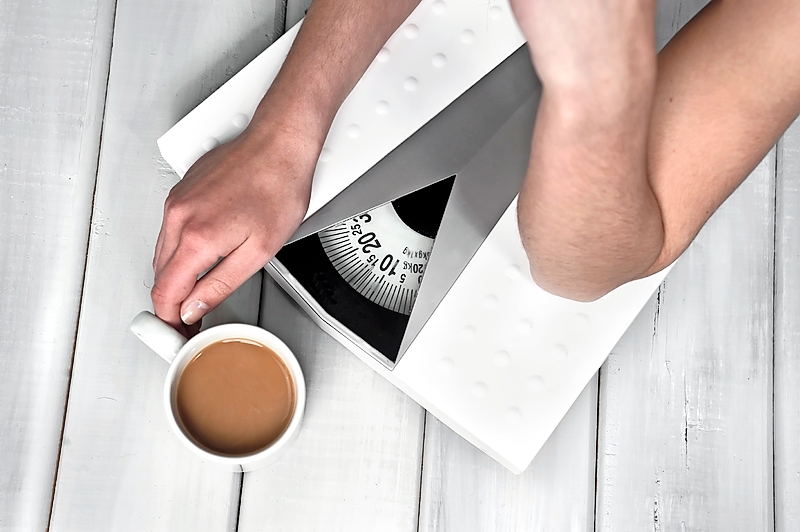Drinking Your Way To Weight Loss—The Pros and Cons of Caffeine as a Dietary Supplement
By Mary Kay Kleist
January 2016 View more Health & Fitness
 Many of us reach for caffeine to boost our energy and alertness levels. In fact, experts estimate that 90 percent of Americans turn to a caffeine kick every day. Caffeine can be found in tea, coffee, soda, energy drinks, and even chocolate. Caffeine is actually a drug that stimulates our central nervous system. People who swear by it say they feel more alert and better coordinated after consuming caffeine.
Many of us reach for caffeine to boost our energy and alertness levels. In fact, experts estimate that 90 percent of Americans turn to a caffeine kick every day. Caffeine can be found in tea, coffee, soda, energy drinks, and even chocolate. Caffeine is actually a drug that stimulates our central nervous system. People who swear by it say they feel more alert and better coordinated after consuming caffeine.
The Great Debate
We know that coffee provides significant antioxidant protection. It’s already known to be a preventive factor against mild depression, Parkinson’s disease, and some forms of colon and rectal cancers. But can caffeine help you shed extra weight? That controversy has been brewing for years. Both sides agree that since caffeine is a mild diuretic, it could cause you to lose a bit of water on a short-term basis. “Some research suggests that caffeine may promote thermogenesis which is the heat your body produces,” said Toni Havala, Dietitian at Naperville’s Edward Hospital. “Increased thermogenesis burns additional calories, but the calories burned are likely not enough to produce meaningful weight loss. Caffeine also has been shown to suppress your desire to eat for a short time. Theoretically this could contribute to weight loss, but no long-term effect has been proven.”
Researchers have looked into whether coffee acts as a preventive factor in type 2 diabetes. Harvard researchers found that drinking coffee daily may reduce the risk of the disease. Researchers from Amsterdam concluded that regular coffee consumption is associated with considerably lower risk of developing type 2 diabetes. But loading your coffee with cream and sugar will not do the trick. However, black coffee, espresso, or a green coffee bean supplement are better choices.
Caffeine and Hunger
Drinking caffeine could actually increase food intake. The caffeine may increase stomach acidity, creating feelings similar to hunger pangs. “Caffeine actually has a role in contributing to carbohydrate cravings several hours after consumption. Caffeine can cause a drop in blood sugar. Lower blood sugar triggers your hunger for starchy foods and sweets. The more caffeine you consume, the hungrier you can become 1 to 2 hours later,” said Havala.
Caffeine and Exercise
Caffeine can help you jump-start your workout, giving you more energy to work out longer with more intensity. “Caffeine can improve athletic performance in endurance exercise and short-term exercise lasting five minutes or more. The American College of Sports Medicine states that the optimal dose for maximizing the chance that exercise performance will be enhanced is ~3-6 mg/kg of body weight. But the ingestion of 10-15 mg/kg of body weight is not recommended as there can be negative health consequences,” said Havala. If caffeine makes your workout seem easier, or just the smell of coffee helps to get you out the door to workout, more calories may be burned just simply from that extra motivation.
The Bottom Line
To date, there are no conclusive clinical studies that have shown a long-term effect of drinking caffeine and weight loss.
Experts say it is best to enjoy caffeinated beverages for the taste. If that first morning cup of coffee or afternoon tea lifts your spirits, then go for it. “If clients enjoy caffeinated beverages such as coffee, I recommend that they stay within the recommended guidelines of 400 milligrams per day or less (24 ounces of brewed coffee). If they are not currently drinking caffeinated beverages, I don’t recommend that they start because there’s no sound evidence that caffeine helps control weight, and in excess can cause negative side effects such as nervousness, insomnia, increased blood pressure and headaches,” said Havala.


